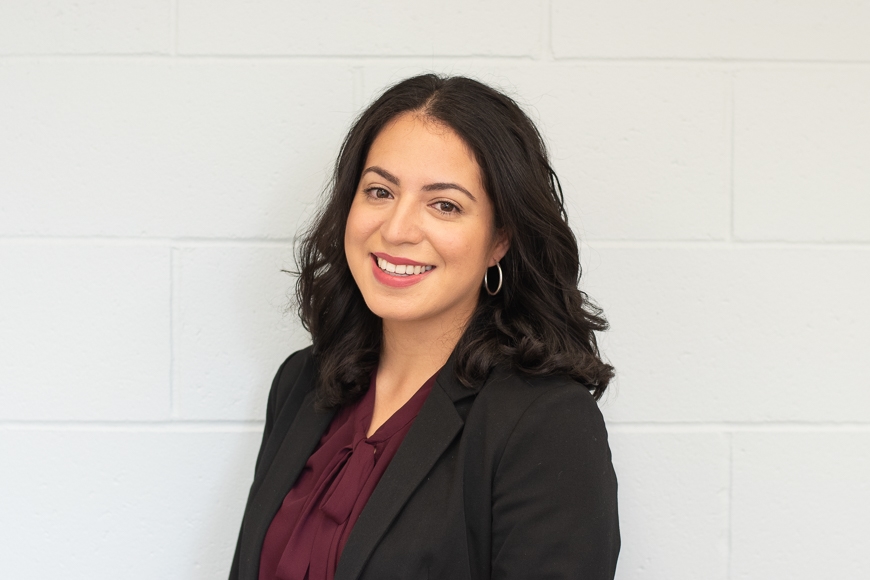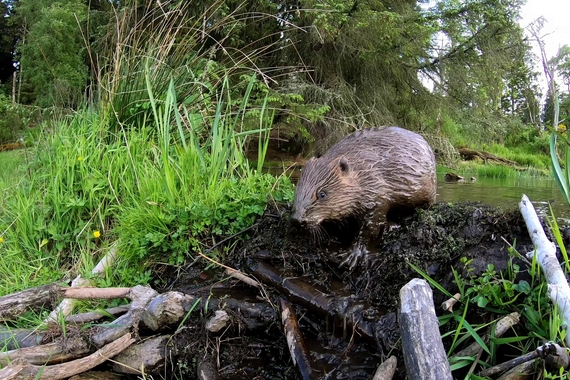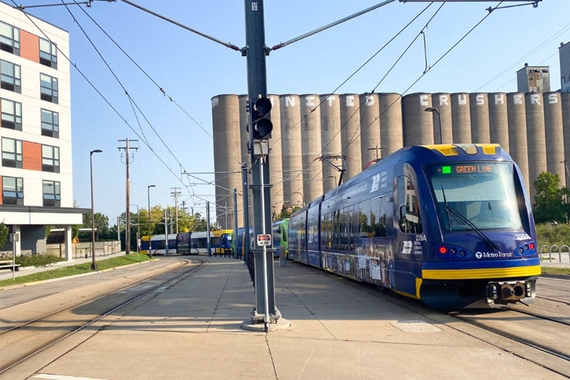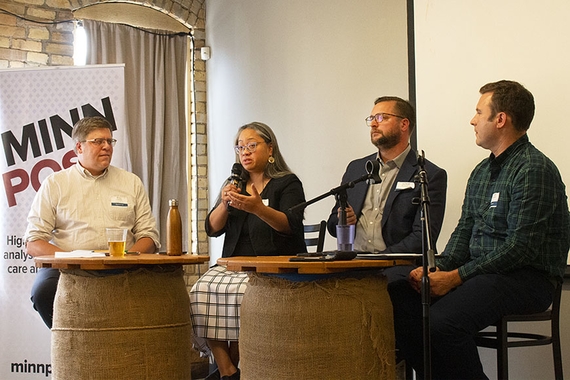New Views on Space, Place & Home
“I think what we're seeing now is that there's a shift happening where people are reclaiming the term geography. They’re reclaiming it in order to ask questions that are in the spirit of antiracism, anticolonialism, decolonization, liberation, and social justice. I want to take part in this movement,” says Assistant Professor Madelaine Cahuas. Cahuas is a human geographer with focuses on urban, feminist, and Latinx studies. New to the University of Minnesota, she is thrilled to continue her research and share her life experiences within the Department of Geography, Environment & Society.
A Nonlinear Path
“My journey to geography hasn’t been straightforward. It hasn’t been a linear trajectory,” Cahuas laughs. Although an activist for some time, when she began her undergraduate degree in Toronto, Canada, Cahuas planned to keep her studies and social engagement separate, pursuing a bachelor of science degree.
The first year of her undergraduate studies coincided with “The Year of the Gun” in Toronto, Canada, a time of numerous shootings in the city in 2005 mainly impacting Black and Latin American youth. “I, myself, and other Latin American students that were in university were trying to find a way to make sense of what was going on. What do we do about this issue? And so we started a tutoring and mentoring program for Latinx youth, which wasn't meant to solve everything, just a tiny intervention.”
She continued this program and began to collaborate with MUJER, an organization that advocates for and promotes the wellbeing of Latinx women. These roots deepened her connections to communities within the social justice nonprofit sphere. Still, she saw it as an outlet, not as her career. After receiving her bachelor’s degree, Cahuas began to question more urban and public health policy issues. She pursued a master’s degree in Hamilton, Canada, where she worked alongside a health geographer to determine how housing, neighborhoods, and urban redevelopment impact people’s health.
Embracing Human Geography
In 2016, Cahuas began her doctoral degree program in geography at the University of Toronto, where she began focusing on Latinx people’s experiences of health and wellbeing. She was especially interested in exploring issues that arise for Latinx women and LGBTQ individuals within community organizing, fully embracing her human geographer role in understanding the relationship between space, place, and identity.
Her research dives into the pain and burnout that occurs within community organizing as women and nonbinary individuals face particular barriers while working to coordinate and campaign on behalf of their community, but also amplifies the innovative strategies they enact to bring about social change.
“I want to highlight how brilliant these women and nonbinary folks are, and how there's also important calls to action that they're proposing through even their creative works: the kinds of art that they produce, the kinds of events that they create, or the kinds of performances they enact,” says Cahuas. “We can see steps to another way of living amongst ourselves as Latin American migrants, but also more broadly, for people that are searching for social justice and liberation.”
When conducting her research, Cahuas uses a technique called testimonio methodology, which exposes injustice and sparks a call to action through the sharing of personal stories. For years she was wary of weaving together her work and her personal life, but she believes the stories of the community workers with whom she has built relationships are too important not to share and cannot be denied any longer.
A New Space
Moving from her home in Toronto to Minnesota, Cahuas hopes to continue her research and build relationships with a new community here. Minnesota, like Toronto, has a small Latin American diaspora, but one that is socially active. As a human geographer in a new location, she is enthralled with the idea of exploring how Latinx communities make place and home in the city.
Cahuas is ecstatic about this stream of geography that goes beyond studying location in a two-dimensional sense. “Latinx scholars have been talking for years about space and place and home, especially in questions of migration. But these conversations haven't really been taken up significantly within the discipline of geography,” says Cahuas.
Now, however, she has seen a push to bring human geography into the conversation of Latinx studies particularly here at the University of Minnesota with its interdepartmental collaboration and communication. “It's just a place of such intellectual richness with people doing really interesting work around social movements and social justice that I am excited to have an opportunity to be in conversation with.”
Some of these conversations take place in the classroom. This semester, Cahuas is teaching an undergraduate- and a graduate-level course and loves engaging in discussions with her students about the impact of where they live on their social interactions, health, and identity, and the reasons such places exist as they are.
Above all, Cahuas emphasizes that geography is for everyone and affects everyone. It is so much more than a historical perspective of mapping; it looks at which spaces are occupied and why.
“...It’s what holds everything together,” states Cahuas. “Maybe that’s really ambitious to say but this is an idea, a concept, a framework that holds different processes together. If we’re thinking about capitalism, social movement, economic inequality, these things are happening within particular places. These things are spatial. These are place-based. They’re happening right here. Geography brings a kind of groundedness to your analysis of the world. We’re actually all doing geography. We just may not call it that.”
This story was written by an undergraduate student in CLA.



